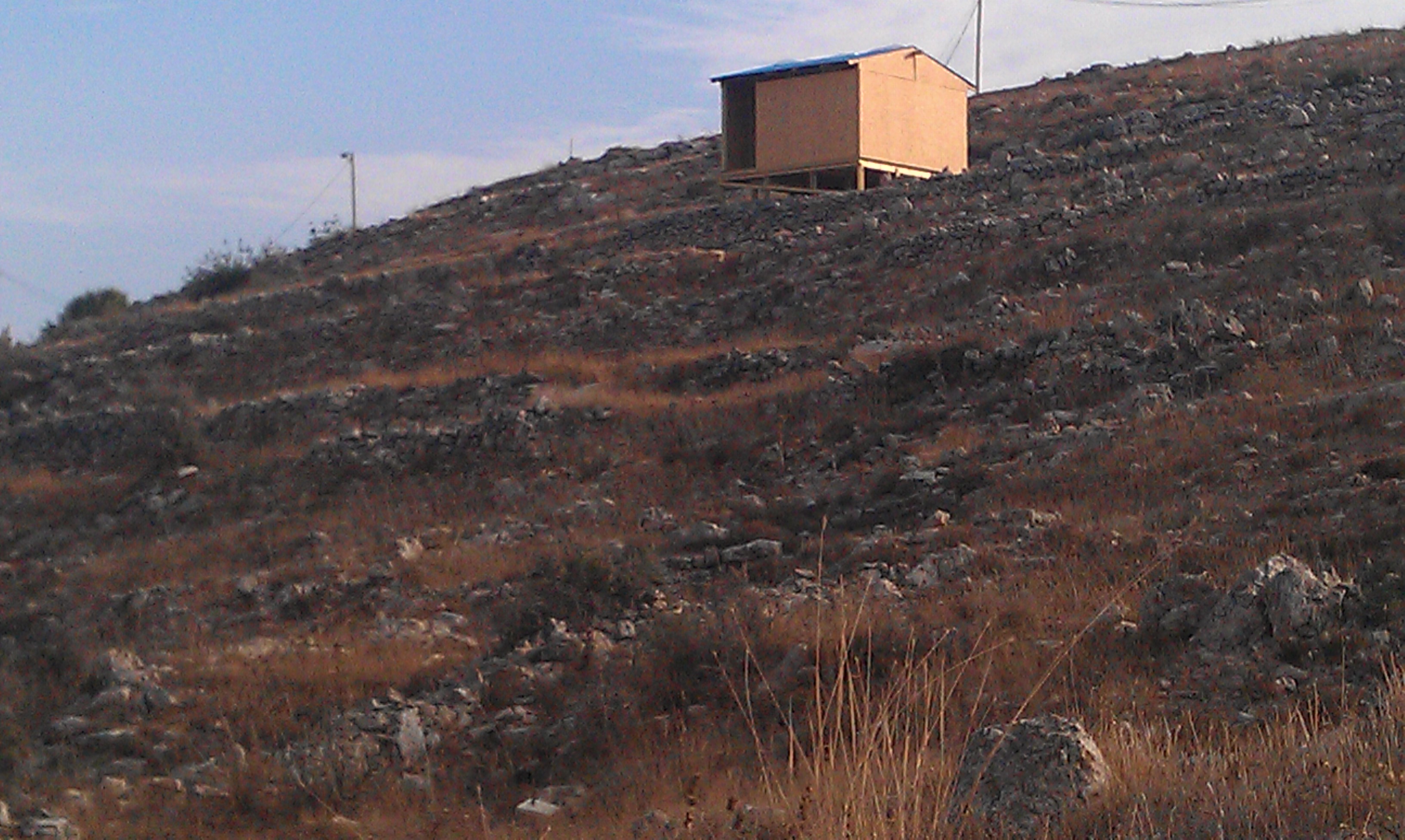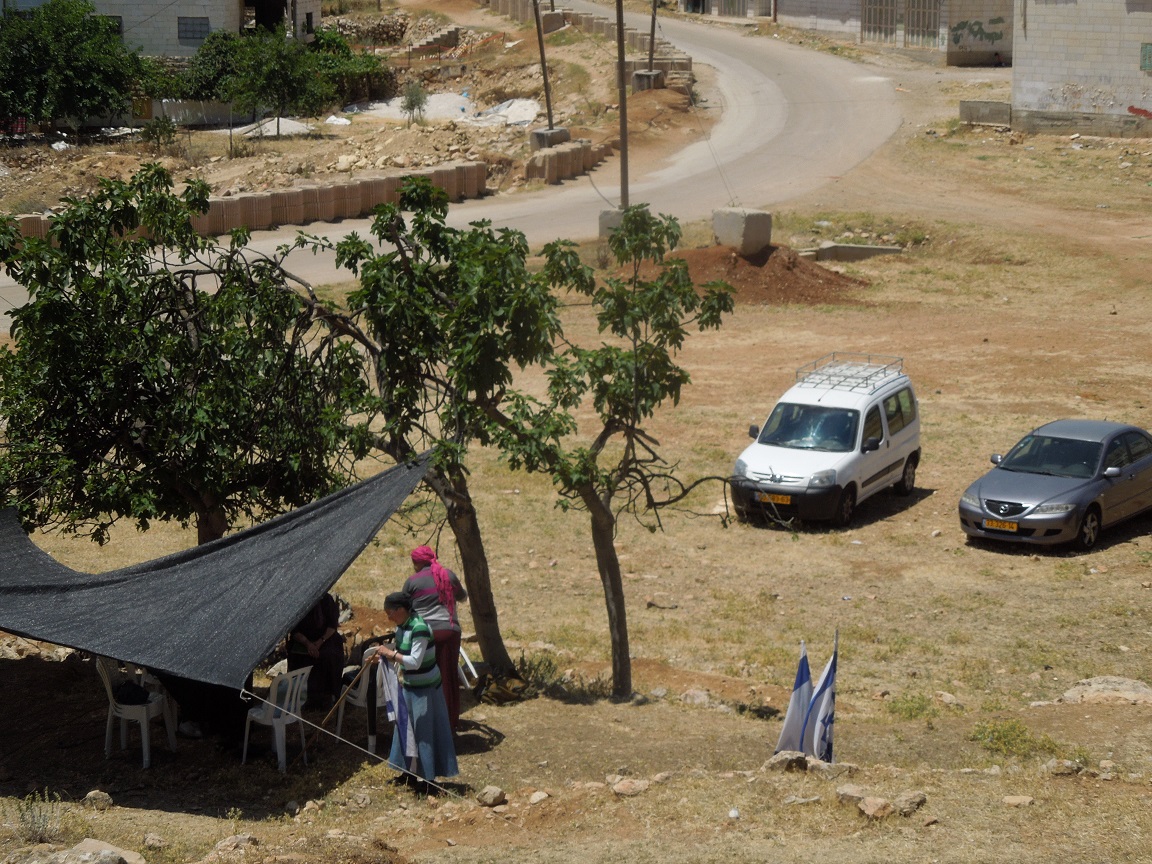Tag: Kiryat Arba settlement
-

Settlement expansion in Hebron encroaches on Palestinian land
10th November 2013 | International Solidarity Movement, Khalil Team | Hebron, Occupied Palestine The attempted expansion of Kiryat Arba, the largest settlement in Khalil (Hebron), threatens to further reassign land boundaries. This would affect the livelihoods of several Palestinian families who have long been subject to harassment and violence. On Tuesday 5th November, international activists were…
-

Settlers setting up tent and planning road in Palestinian owned land in Al Khalil
27th May 2013 | International Solidarity Movement, Team Al Khalil | Hebron, Occupied Palestine UPDATE 28th May: Settlers claim that they will return on 28th May to build a road on Palestinian owned land in Wadi al-Hussein, Al Khalil. No building has yet taken place and settlers have yet to provide any documentation or court…
-
Settlers destroy olive trees in Hebron
November 7th 2012 | International Solidarity Movement, West Bank Several olive trees and one apricot tree were destroyed on the morning of November 5th in a section of Khalil (Hebron) called Jales Mount, which is near the illegal settlement of Kiryat Arba. Rashed Zaroo showed the damage to internationals that afternoon. He explained that the…
